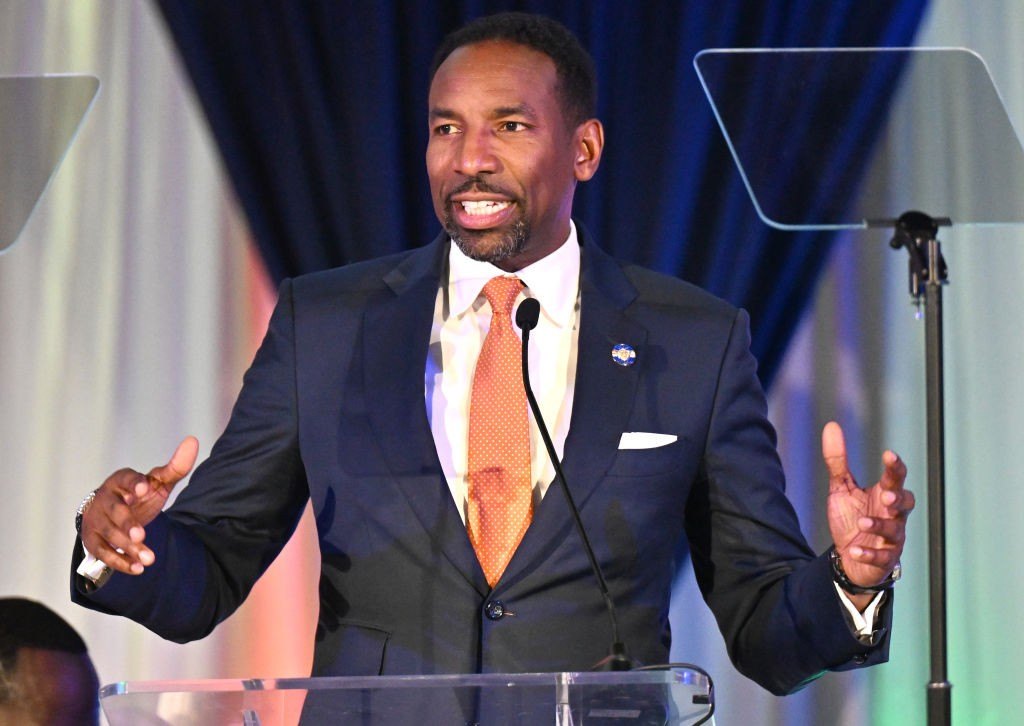Atlanta Gets Creative With Affordable Housing in a Bid To Meet Goal of Creating 20,000 Homes


Nykieria Chaney/Getty Images; Getty Images
Atlanta‘s affordable housing market looks set to get a major boost as the city pushes forward with an innovative new plan to provide more budget-friendly dwellings for low-income residents.
Prior to his election, Mayor Andre Dickens set an “ambitious” campaign commitment goal of building or preserving 20,000 units of affordable housing by 2030.
Now, to remain true to that promise, Dickens got creative, opting to look right in his own backyard, so to speak, to find the resources for the new housing opportunities.
In doing so, more than 3,000 affordable housing units have been created and nearly 5,000 are in development since 2022.
The city says it wants to target Atlanta residents who need it most—”from legacy residents and low-income households to the city’s unhoused population.”
Public property
In May 2022, Dickens started the Affordable Housing Strike Force made up of leaders from numerous sectors of Atlanta, including housing, education, and transportation.
Just last year alone, the group was able to advance 40 public land projects through the development pipeline.

(Paras Griffin/Getty Images)
The mayor didn’t stop there. Under the Strike Force, the Atlanta Urban Development Corporation (AUD) was formed. It’s staffed by real estate professionals with guidance from city employees.
The goal is to identify publicly owned property and partner with private developers, according to Atlanta Civic Circle.
Atlanta’s housing affordability problem
The median house list price in Atlanta is $375,000, less than the national median of $449,000.
But that doesn’t necessarily make homeownership affordable for its residents. The AMI (area median income) for the metro is $86,000 for a family of four. Anything less than that is considered low income.
“Families at this income level will have difficulty affording housing in many parts of the metro,” says Dan Immergluck, professor of urban studies at Georgia State University, on LinkedIn.
Families would need an income of $115,430 to afford a home in Atlanta, according to Fox 5.
“We had a lot of underutilized space in the city, underutilized land,” Dickens told the outlet.
Atlanta’s population surged from 394,000 in 1990 to more than 532,000 today, according to the U.S. Census Bureau.
How the plan is working
AUD takes inventory of all publicly owned land, analyzes it for the best use of space, and rezones it if necessary.
“The AUD model prioritizes long-term affordability and public control of assets via a new model of public land development,” says its website.
Success stories include 100 acres of land in the Thomasville Heights neighborhood that was city-owned. In 2024, the land was consolidated and rezoned under AUD.
Demolished was the blighted 22-acre Forest Cove Apartments, an abandoned and derelict Section 8 apartment complex. It was owned by Ohio-based Millennia Housing Management, and for years the city had been locked in a legal battle with the landlord.
Even after a judge condemned the property and ordered it razed, the landlord had sat on it.
After much legal wrangling, the complex was demolished to make way for planned affordable rentals and homeownership units, including detached single-family residences and townhomes.
A redevelopment plan also includes a new grocery store, a new early-childhood education center, an elementary school, and about 3,000 units of new housing, of which about 30% will be affordable.
“Atlanta has definitely cracked the code on public assets,” Bruce Katz, co-founder and director of the Nowak Metro Finance Lab at Drexel University, told the outlet. “I think this will become a new model that gets repeated all across the country.”

(Courtesy of Atlanta Urban Development Corporation )
In another success story, a city-owned facility on almost 10 acres of land was used to store new trash cans for decades. The cans have been moved so the much-needed land can be redeveloped.
“It’s not the highest and best use of the land,” Josh Humphries, the mayor’s senior policy adviser on housing, told the outlet about the trash cans.
And in a notably creative use of space, a downtown fire department that desperately needed a renovation agreed for the city to build 30 stories of housing units above it in exchange for the rehab.
The final design of the project will be completed in 2025.
One hopes the units will have excellently soundproofed windows, but no doubt many would be willing to live with the sound of fire engine sirens in exchange for affordable living spaces.
Categories
Recent Posts











"My job is to find and attract mastery-based agents to the office, protect the culture, and make sure everyone is happy! "
